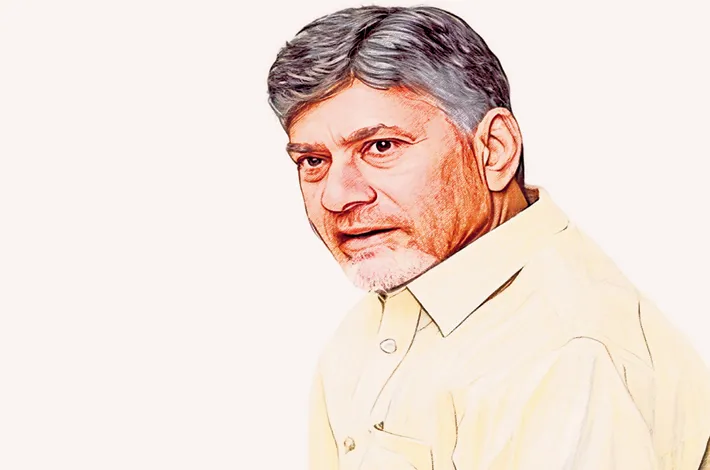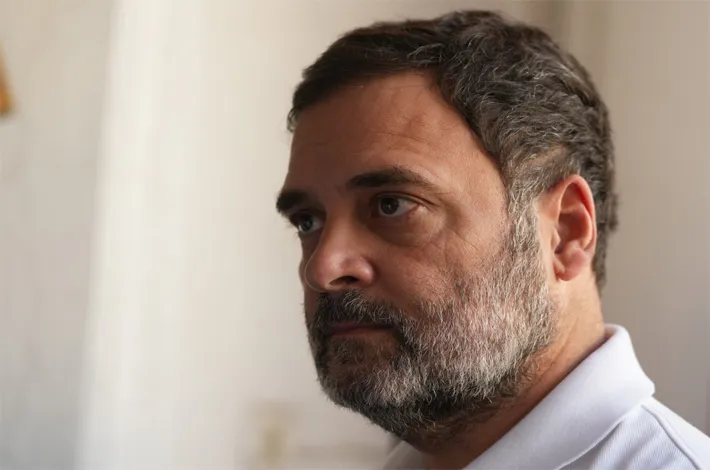A Legacy That Redefines Andhra Pradesh
11-10-2025 12:00:00 AM

In the heart of Andhra Pradesh's bustling capital Amaravati, where gleaming skyscrapers meet verdant fields, N. Chandrababu Naidu marked a monumental milestone today: 15 years as Chief Minister. The Telugu Desam Party (TDP) supremo, who rose from the dusty lanes of a small village near Tirupati without a drop of political blue blood in his veins, has etched his name in the annals of Indian governance. This isn't just a personal triumph; it's a saga of transformation that has propelled Andhra Pradesh from agrarian roots to a beacon of innovation and growth.
Naidu's journey as Chief Minister, began on September 1, 1995, amid a tempest in TDP ranks. Thrust into leadership during a party schism, the young leader from a modest farming family didn't flinch. Instead, he unleashed a barrage of reforms that, though met with fierce backlash at the time, laid the foundation for the state's economic renaissance. Critics lambasted his policies as ruthless, but history has vindicated him. Under his stewardship, Hyderabad blossomed into India's Silicon Valley, thanks to the visionary HITEC City project. This sprawling tech enclave didn't just create jobs; it magnetized global giants like Microsoft and Google, injecting billions into the economy and uplifting millions from poverty.
Naidu's first term, spanning over eight years and 255 days – the longest in undivided Andhra Pradesh's history – was a masterclass in administrative grit. He revolutionized the power sector, ending chronic blackouts through privatization and efficiency drives that slashed tariffs and boosted generation capacity. Investments in engineering and technical education surged,
birthing a generation of skilled professionals who now power India's tech boom. "Chandrababu's highs in those years weren't just numbers on a balance sheet; they were lives changed, dreams ignited," says political analyst Dr. Rama Krishna, who chronicled Naidu's era. By 2004, Andhra Pradesh's GDP had doubled, poverty rates plummeted, and the state stood tall as a model for progressive governance.
But politics, like life, is a rollercoaster. The 2004 electoral drubbing was a gut-wrenching low, ending Naidu's decade-long reign and plunging TDP into wilderness. For 10 grueling years, he toiled in opposition, facing ridicule and internal fractures. Still this period showcased his unyielding resilience. Naidu crisscrossed the state, rebuilding alliances and refining his vision. He didn't retreat into bitterness; instead, he evolved, turning setbacks into strategic blueprints. "Those years in the shadows honed his foresight," notes a veteran TDP leader "He emerged not broken, but unbreakable."
The state's 2014 bifurcation – a bittersweet divorce from Telangana – handed Naidu a phoenix-like rebirth. Elected as the first Chief Minister of the residuary Andhra Pradesh, he dove headlong into reconstruction. With 6 years and 110 days under his belt in the new state, Naidu's second term was defined by audacious dreams. Amaravati, the greenfield capital rising from the Krishna River's banks, symbolized his infrastructure obsession. Farmers donated land willingly, inspired by promises of world-class urban planning infused with sustainable tech. Roads, ports, and airports sprouted like never before, drawing investments worth trillions. The Polavaram irrigation project, a Naidu hallmark, promised to irrigate 30 lakh acres, quenching the thirst of parched farmlands and boosting agricultural yields by 20%. Even amid fiscal constraints post-bifurcation, his push for skill development hubs and startup ecosystems positioned Andhra as India's "Sunrise State."
But still, lows loomed large again in 2019. A crushing defeat at the polls, followed by a whirlwind of legal skirmishes and a 53-day imprisonment on alleged corruption charges, tested the very core of his spirit. Stripped of power, Naidu could have faded into obscurity. Instead, he fought back with the ferocity of a lion. From jail, he penned letters rallying his cadre; post-release, he toured villages, amplifying voices against governance lapses.
His lows became lore – tales of a leader who turned incarceration into introspection, emerging with sharper resolve.
The ultimate high arrived in 2024, a coalition masterstroke that swept TDP back to power. Partnering with like-minded allies, Naidu orchestrated a stunning comeback, securing a mandate to govern once more. Today, at 75, he stands as one of India's most enduring chief ministers, his 15-year cumulative tenure eclipsing icons like M.G. Ramachandran and J. Jayalalithaa. Only Tamil Nadu's M. Karunanidhi and Puducherry's N. Rangasamy from the South rival his longevity. "Chandrababu's story is Andhra's story – from crisis to crest, always ascending," declares a one-time rival turned admirer from the Congress party.
What sets Naidu apart is his blend of highs and lows into a tapestry of progress. His administrative acumen shines in data-driven decisions: e-governance portals that cut red tape, digital classrooms reaching remote hamlets, and a welfare net expanded through schemes like Pasupu Kumkuma, empowering rural women. Critics once called him a "CEO CM" for his corporate-style efficiency; today, that label is a badge of honor. Under his watch, Andhra's ease of doing business ranking soared, attracting FDI that rivals Gujarat's. Environmentally, his river-linking ambitions and solar parks underscore a forward-thinking ethos, balancing growth with green imperatives.
As confetti rained at a subdued yet jubilant event in Amaravati today, Naidu reflected humbly. "Fifteen years isn't about me; it's about the people who've trusted this journey," he said, eyes twinkling with that familiar spark. Political peers, from BJP's Union Minister Kishan Reddy to YSRCP's lingering foes, hailed his crisis-navigation skills. "He's the architect of tomorrow," Reddy tweeted, echoing a sentiment rippling across the state.
AP Cabinet clears Rs 1.14 lakh crore investments
In a sweeping industry-first agenda, the Andhra Pradesh Cabinet chaired by Chief Minister N. Chandrababu Naidu on Friday approved investment proposals valued at Rs 1,14,824 crore, positioning the state for a fresh wave of jobs and infrastructure. Ministers said the clearances will accelerate ground-level execution, with departments tasked to hand-hold investors until operations commence.
Visakhapatnam remains the fulcrum of the state’s growth map, with approvals for a data centre and IT campus, a logistics hub, and tourism assets. The Cabinet also advanced the AP IT & GCC Policy (4.0) 2024–29 and green-lit land under the LIFT framework to mid-sized tech units, including 4.05 acres at Bheemunipatnam for a Rs 140-crore IT facility expected to create 2,600 jobs. A large AI-enabled data-centre program across 480 acres in Visakhapatnam and Anakapalli districts also secured land and incentives, signaling a digital infrastructure sprint with significant indirect employment.
Underscoring the government’s capital-city commitment, the Cabinet accorded administrative sanction of Rs 212.22 crore for the Governor’s Residential Complex (Raj Bhavan, Durbar Hall, offices and staff quarters). CRDA will fund 25% of underground drainage in Mangalagiri-Tadepalli, while hospitality approvals include new 4-star hotels and convention centres to anchor business tourism in the capital region.
JSW Industrial Park Ltd will develop a 1,166-acre Private Mega Industrial Park in Vizianagaram (Rs 531 crore; 45,000 jobs), hosting MSMEs in textiles, agri-processing, EVs, green hydrogen and logistics. Similarly, Bharat Dynamics Ltd (BDL) received 1,400 acres in Prakasam for a propellant and weapons-systems complex (Rs 1,200 crore; 1,400 jobs).
In Anakapalli, an Advanced Carbon Complex (Rs 260 crore; 800 jobs) and a pharma unit regularisation in JN Pharmacity progressed, alongside Raymond Group subsidiaries for automotive and aerospace components in Anantapur (combined Rs 940 crore; 5,500 jobs). Under the AP Integrated Clean Energy Policy 2024, the Cabinet cleared capacity optimisation for a 349.5 MW wind-solar hybrid in Kurnool–Nandyal; 2,000 MW pumped-storage project at Duggairi with long-term green-fund accruals; Tata Power Renewable Energy’s 400 MW AC solar project in Anantapur; and 400 MW AC solar with 600 MWh BESS in Anantapur. Four food-processing proposals won special packages, including a Rs 758-crore food park in Kurnool and edible-oil and soy facilities in Eluru and Chittoor. Tourism got a strategic lift as Marriott, Hilton, Daspalla, Oberoi and Taj-branded assets in Amaravati, Srisailam, Visakhapatnam, Araku and Tirupati with Rs 1,628.8 crore and 4,398 direct jobs to push high-value visitor spends. Logistics approvals include a Gurampalem hub near Visakhapatnam.








